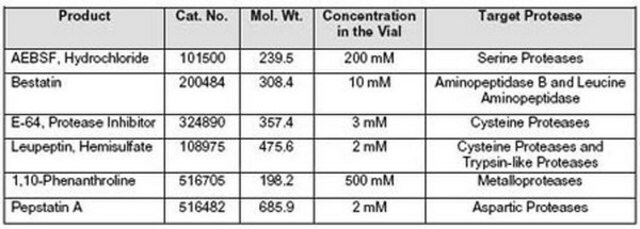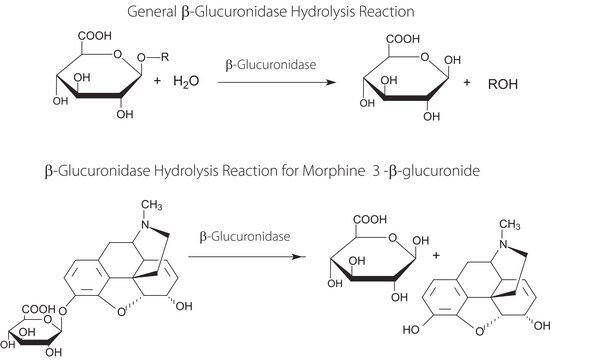539136
Protease Inhibitor Cocktail IV
liquid, for the inhibition of serine proteases, cysteine proteases, aspartic proteases and metalloproteases. This small molecule/inhibitor is primarily used for Protease Inhibitors applications.
Synonym(s):
Protease inhibitor cocktail
About This Item
Recommended Products
product name
Protease Inhibitor Cocktail Set IV, The Protease Inhibitor Cocktail Set IV controls the activity of Protease. This small molecule/inhibitor is primarily used for Protease Inhibitors applications.
form
liquid
manufacturer/tradename
Calbiochem®
storage condition
OK to freeze
shipped in
wet ice
storage temp.
−20°C
General description
Specificity
Application
Biochem/physiol Actions
aspartic-, cysteine-, metallo-, and serine-proteases
Warning
Physical form
Reconstitution
Other Notes
Legal Information
Signal Word
Warning
Hazard Statements
Precautionary Statements
Hazard Classifications
Acute Tox. 4 Oral - Aquatic Acute 1 - Aquatic Chronic 1 - Eye Irrit. 2 - Skin Irrit. 2
Storage Class Code
10 - Combustible liquids
WGK
WGK 3
Flash Point(F)
188.6 °F - Information refers to the main ingredient.
Flash Point(C)
87 °C - Information refers to the main ingredient.
Certificates of Analysis (COA)
Search for Certificates of Analysis (COA) by entering the products Lot/Batch Number. Lot and Batch Numbers can be found on a product’s label following the words ‘Lot’ or ‘Batch’.
Already Own This Product?
Find documentation for the products that you have recently purchased in the Document Library.
Customers Also Viewed
Our team of scientists has experience in all areas of research including Life Science, Material Science, Chemical Synthesis, Chromatography, Analytical and many others.
Contact Technical Service
















